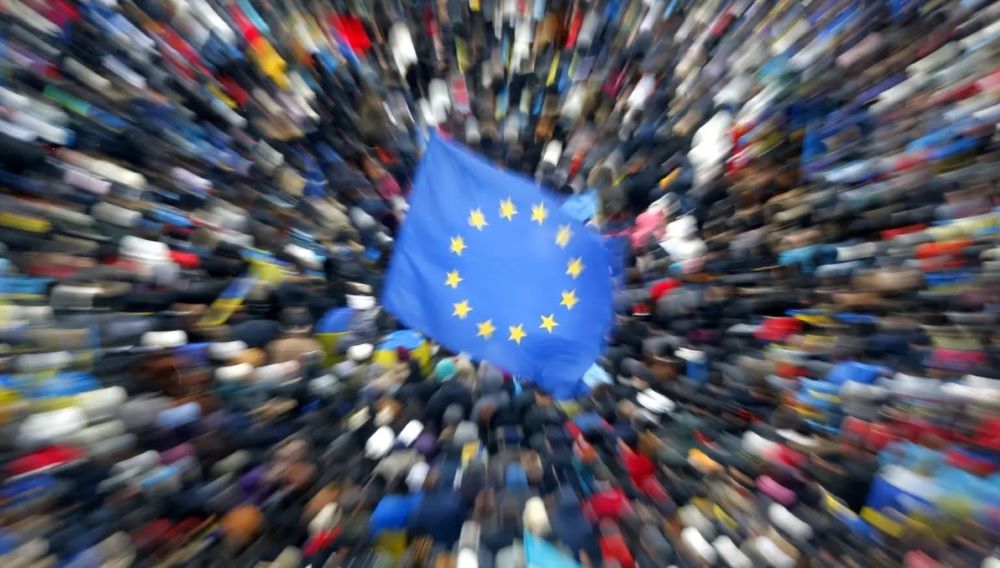Paradoxically, further steps on the European path could lead to the spread of ‘non-European’ values of nationalism and the cultivation of the fields for the ‘weed’ of the radical right to emerge.

Zdravko Saveski
This dilemma is faced by the political establishment in Northern Macedonia regarding the further steps on the European path. The realpolitik of these steps requires compromises with neighboring EU members (first Greece and now Bulgaria), which irritate the latent nationalism present in many people (in this case: ethnic Macedonians) and push them into the arms of the radical right. Paradoxically, further steps on the European path could lead to the spread of ‘non-European’ values of nationalism and the cultivation of the fields for the ‘weed’ of the radical right to emerge. And if further political rapprochement with the EU leads to a cultural departure from EU ideals, the EU establishment can use that cultural departure and the political implications from the increased power of the radical right as an excuse not to grant membership. That way, the expediency of all compromises made precisely for the sake of EU membership loses its purpose. And the cake – neither it remains whole, nor we eat it.
Usually, we respond late to the threat of the radical right. That is, the threat is addressed after it becomes a burning issue. And then it’s too late. Working against nationalism is a long process and cannot be completed from today to tomorrow. And that work in Northern Macedonia (as well as in the whole Balkans) is usually done fitfully, not systematically, and it often goes two steps forward, three steps back. The vast majority consider their ethnic identification as the most important and even the only element of their identity. The fact that they are Macedonians or Albanians is the most important, maybe the only important thing to them, in terms of being people, workers, women, citizens of Tetovo, etc. This already provides the basis on which nationalism can be grafted. And the failures of the intellectual ‘elite’ contribute to make the foundation stronger. Not only ordinary people, but also ‘intellectuals’ operate with the amateur (and misguided) understanding that patriotism means to love your people, and that it becomes nationalism (only) if you hate others. What are the results of this?
a) countless “patriots” who do not understand the concept of “countrymen” and recognize only “compatriots”, who are unfamiliar with concepts such as the ethical patriotism of Igor Primorac, not to mention anti-nationalism, internationalism and cosmopolitanism.
b) nationalist hegemonic narrative of historical (non) knowledge where the text of the ‘Krushevo Manifesto’ is terra incognita; Delchev’s ethnic identity is the most important thing for him; ASNOM Macedonia has become a mantra, and it is forgotten that it was for a Yugoslav federation, and not for an independent Macedonia; we remember the murders done by the Bulgarians in Vatasha during The National Liberation War, but we forget the sacrifice of the Albanians from Dolno Jabolciste, the joint waving of the Macedonian and Albanian flags in freed Kicevo, the carrying of Macedonian and Albanian partisans by the Albanian villagers from Raven, the solidarity of the inhabitants in Tirana with the Macedonian partisans, killed by the fascists.
Historical science has been turned into a den of nationalists (‘patriots’), critical historiography has not been created, and political science stagnates, impotent in developing even the most basic tools for combating nationalism. In this context, the ‘intellectuals’ have failed. Latent nationalism simmers in many of them; when not agitated, it comes down ‘only’ to passive antipathy and distrust of members of other ethnicities. But when agitated, it turns into fertile ground for the radical right to flourish, if not worse.
The strengthening of the radical right weakens the prospects for EU membership not only for North Macedonia, but for the entire Western Balkans. So, when further steps on the European path require compromises that inevitably strengthen the radical right, one should think carefully, otherwise, we could end up in a situation where we get a strong radical right and zero chances for EU membership. The work done so far against nationalism and other factors that feed the radical right has obviously failed. We need to critically reconsider why this is the case, instead of running headlong into the wall, estimating that the strengthening of the radical right is a calculated risk of making ‘bold’ (and not very wise) political decisions.
Zdravko Saveski, Ph.D. Researcher / Assistant Professor, Institute of Social Sciences and Humanities – Skopje



Leave A Comment